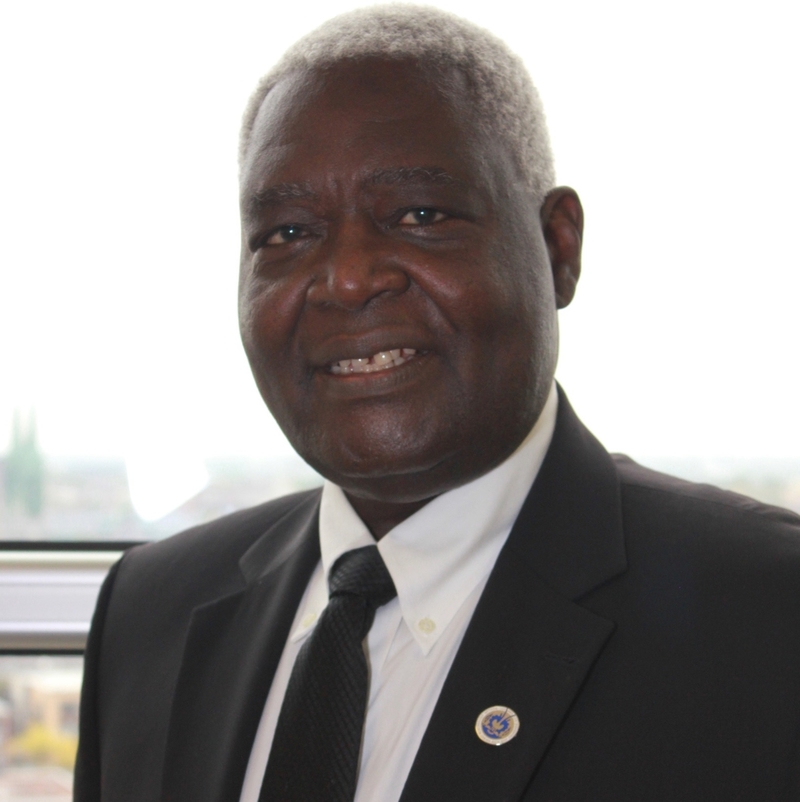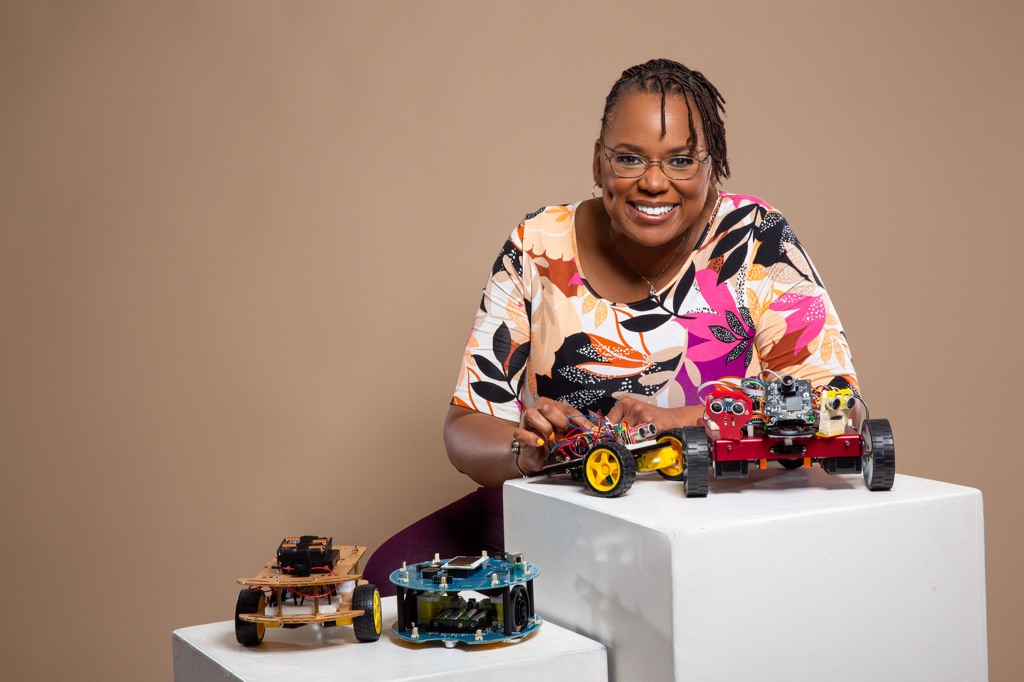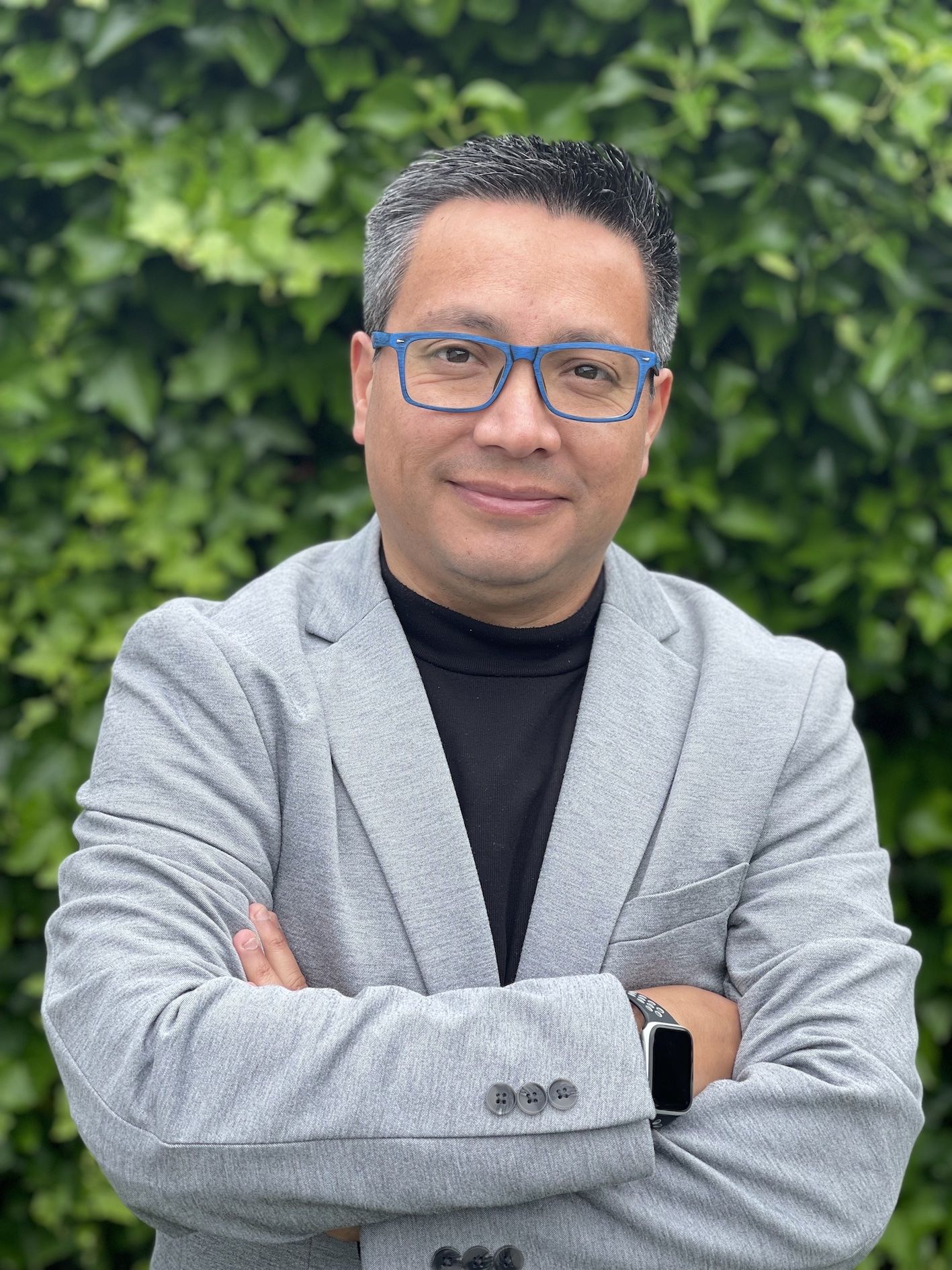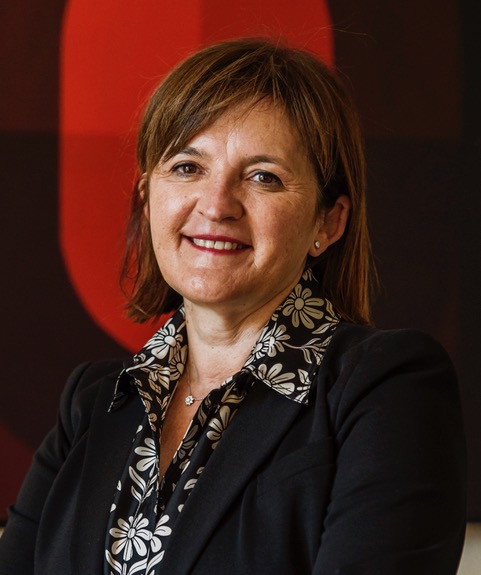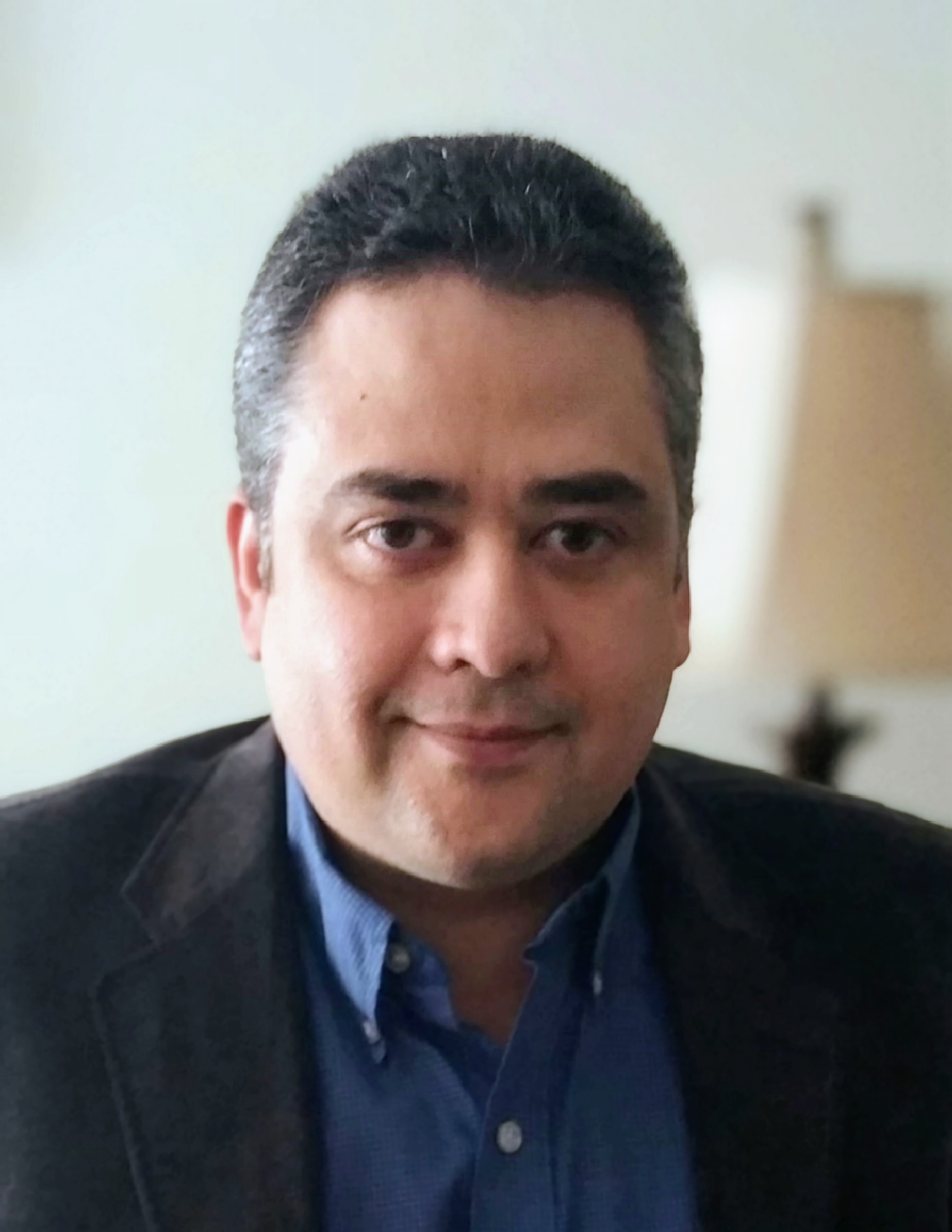IEEE Education Society Distinguished Lecturer Panel

Distinguished Lecturers are experts who present on-line webinars and are also available to make electronic or in-person presentations at conferences, workshops, and meetings organized by the Society or its chapters.
In-person presentations will have travel and expenses funded by the event or the chapter. The Society will subsidize a set of in-person events each year. The Distinguished Lecture and Educational Activities Program Committee (DLEAP) reviews applications and chooses events to financially support with a travel grant. Chapters should contact the Vice President for Educational Activities for more information when planning new events.
To know more about IEEE Education Society Distinguished Lecturer Panel reach us at https://ieee-edusociety.org/educational-activities/distinguished-lecturer-program
Date and Time
Location
Hosts
Registration
-
 Add Event to Calendar
Add Event to Calendar
Loading virtual attendance info...
Speakers
Hamadou of Université TELUQ, Montréal, Canada
Welcome and Introduction to IEEE Education Week 2024 Education Society Distinguished Lecturer Panel
As Vice President Educational Activities of the IEEE Education Society, the speaker briefly presents the Distinguished Lecturer program for which he is responsible.
Biography:
Professor Saliah-Hassane earned a PhD in Electrical and Computer Engineering from McGill University in Montreal, a Bachelor and Master of Applied Science degree from École Polytechnique de Montréal, Canada. He is currently teaching Informatics and Computer Networks and Security at TELUQ University in Montreal where he is carrying research on Intelligent Distributed Systems and Mobile Robotics. Professor Saliah-Hassane has received many awards in recognition of his accomplishments, including many IEEE Education Society Certificates of Appreciation, IEEE Education Society’s EdWin C. Jones, Jr. Meritorious Service Award (2019). And aligned with his work on Distributed Embedded Systems, the IEEE Standards Association award with appreciation for chairing and contributing to the development of IEEE Standard 1876 – 2019 on “Networked Smart Learning Objects for Online Laboratories” (2019), the IEEE SA 2019 Emerging Technology Awarded to IEEE SA 1876 – 2019 Working Group. Under the Candidate leadership as the Chair of Montreal IEEE Education Society Chapter (2005 -2022), the Chapter received the “2019 Chapter Achievement Award for sustained contributions of innovative educational and professional activities in the community”.
Professor Saliah-Hassane is member of Professional Engineers of Québec (OIQ); of the American Society for Engineering Education (ASEE); of African Engineering Education Association (AEEA); Was member of Board of Governors of IEEE Education Society (2007 -2013 & 2014-2017) and Past Chair of its Standards Committee). Prof. Saliah-Hassane was Chair of Electrical Engineering Department of an African Regional Engineering School of Mine, Industry and Geology including seven countries in Niger (1989-1994).
Professor Saliah-Hassane received the “2005 Achievement Award” from the International Network for Engineering Education (iNEER) for “Research and Innovation on Online laboratories and for the Advancement of International Collaboration”. He is one of the founding members of the Global Online Laboratory Consortium called GOLC (2009) merged with the International Association for Online Engineering (IAOE) where Prof Saliah-Hassane is a member of the Executive Committee. In 2012, Professor Saliah-Hassane was recognized with highest academic distinction of “Commander of the Order of Academic Palm” by Republic of Niger, his native country.
Email:
Address:Montréal, Quebec, Canada
Carlotta of ROSE-HULMAN INSTITUTE OF TECHNOLOGY
Robotics For The Streets: Open-Source Robotics for Academics and The Community
The “Robotics For the Streets” project has an express goal of diversifying science, technology, engineering and math (STEM) by using open-source robotics to increase access to and visibility of STEM technology. These robots have the flexibility and modularity for modification based upon the user’s needs. The benefits of this platform include the ability to be appropriate for any level from novice to experts. It is intended to be used for everyone from K-12 teachers introducing students to STEM to graduate students looking to explore advanced topics in artificial intelligence or makers looking for a platform to test out their ideas. It is hoped that this robotic platform will serve as a model and pathway for teachers, professors, practitioners, and STEM enthusiasts, with limited resources to engage in robotics outreach, teaching, and research. It will also enable academics at teaching or primarily undergraduate institutions to meet their professional development goals with respect to promotion, tenure and retention at a low-cost.
Biography:
Carlotta A. Berry is a Professor in the Department of Electrical and Computer Engineering at Rose-Hulman Institute of Technology and the 2021-2024 Dr. Lawrence J. Giacoletto Endowed Chair for Electrical and Computer Engineering. She is also the 2024 Visiting Scientist for The Children's Museum of Indianapolis.
She has a bachelor’s degree in mathematics from Spelman College, bachelor’s degree in electrical engineering from Georgia Institute of Technology, master’s in electrical engineering from Wayne State University, and PhD from Vanderbilt University. She is one of a team of faculty in ECE, ME and CSSE at Rose-Hulman to create the first multidisciplinary minor in robotics. She is the Co-Director of the NSF S-STEM Rose Building Undergraduate Diversity (ROSE-BUD) Program, advisor for the National Society of Black Engineers, and previously the President of the Technical Editor Board for the American Society of Engineering Education (ASEE) Computers in Education Journal. Her research interests are in robotics education, interface design, human-robot interaction, and increasing historically marginalized and minoritized populations in STEM fields.
She has a special passion for diversifying the engineering profession by encouraging more women, marginalized and minoritized populations to pursue STEM degrees. She achieves this purpose with robotics education, engineering education and human-robot interaction research to bring more people to STEM. Her strong service record has garnered her multiple accolades and awards including 2023 IEEE Undergraduate Teaching Award, Society of Women Engineers 2022 Distinguished Engineering Educator Award, 2022 Distinguished Educator Award from the American Society of Engineering Education Electrical and Computer Engineering Division, 2022 Open Source Hardware Trailblazer Fellow, 2021 TechPoint Foundation for Youth Bridge Builder award, and Grace Hopper Celebration Abie award for Educational Innovation award. In 2020, she was named.one of 30 Women in Robotics You Need to Know by robohub.org, Reinvented Magazine Interview of the Year Award on Purpose and Passion, FIRST Indiana Robotics Gamechanger Award 2020, Women and Hi Tech Leading Light You Inspire Me Award 2018 and Insight Into Diversity Inspiring Women in STEM.
During 2020, she worked with colleagues around the world to start two nonprofit organizations, Black In Engineering and Black In Robotics. They have a mission to bring awareness to systemic racism and inequity in STEM, build community, advocate for diversity, equity, inclusion and connect with allies and sponsors.
Email:
Address:Terre Haute, United States, 47803-3999
Johann of IDLab, University of Antwerp, in collaboration with imec
The Role of Standardization in the Design of Remote Laboratories in Engineering Education
This talk delves into the pivotal role that standardization plays in shaping the landscape of remote laboratories within engineering education. By establishing common approaches, standardization not only facilitates interoperability but also enhances accessibility, scalability, and effectiveness of remote laboratory initiatives. Through case studies and insights of the IEEE Std. 1876-2019 On Networked Smart Learning Objects for Online Laboratories and the IEEE P2834 - Standard for Secure and Trusted Learning Systems , the presentation highlights how adherence to standardized practices empowers educators to create robust and impactful learning environments, ultimately enriching the educational experience for engineering students worldwide.
Biography:
Prof. Marquez-Barja is a Professor at University of Antwerp & IMEC, Belgium. Currently, he is leading the Flexible & Programmable Networks Group, as well as the Intelligent Networking Cluster at IDLab/imec Antwerp. Previously he led the Wireless Cluster. He was and is involved in several European research projects such as CREW, FORGE, WiSHFUL, Fed4FIRE/FAVORITE, Fed4FIRE+, eWINE, CONCORDA, 5G-CARMEN, FLEXNET, FUTEBOL (Technical Coordinator), 5G-Mobix, PROTEGO, InterConnect, Dedicat-6G, Daemon, Vital-5G, TrialsNet, For-Freight, Hexa-X-II, iSEE-6G, 6GXCEL, and 5G-Blueprint (Technical Coordinator) projects. Prof. Marquez-Barja has been appointed as Distinguished Lecturer by the IEEE Vehicular Technology Society, and also by the IEEE Education Society, holding such appointment simultaneously for two different IEEE societies. He is a member of IEEE Standards Association, Senior Member of the Association for Computing Machinery (ACM), a Fellow of European Association for Innovation (EAI), a Senior Member of the IEEE Communications Society, IEEE Society on Social Implications of Technology, IEEE Vehicular Technology Society, IEEE Intelligent Transport System Society, and IEEE Education Society, where he participates on the board of the Standards Committee. . His main research interests are: 5G advanced architectures including edge computing; flexible and programmable future end-to-end networks; 6G network-of-networks; and interoperability among 3GPP and non-3GPP systems. He is also interested in vehicular communications, mobility, and smart cities deployments. Prof. Marquez-Barja is leading the Citylab Smart City testbed, part of the City of Things programme, and the SmartHighway testbed, both located in Antwerp, Belgium. Furthermore, he is also interested and active on education development, being actively involved in different research actions to enhance engineering education, in particular remote experimentation in e-learning systems. Prof. Marquez-Barja has given several keynotes and invited talks in different major events, as well as received 30+ awards in his career so far, and co-authored more than 250 published works including publications, editorials, and books. He is also serving as Editor and Guest editor for different International Journals, as well as participating in several Technical Programme and Organizing Committees for several worldwide conferences/congresses. Prof. Marquez-Barja received his Bachelor and Msc. in Systems Enginnering in 2002 at the Royal Saint Francis University (UMRPSFXCH, Bolivia), Msc. in Telematics at CUJAE University (Cuba) in 2004, Msc. in Computer Architecture at University Politechnic of Valencia in 2008, Spain, to then obtain his PhD. on Wireless Networks in the same University in 2012. After that he was Postdoc and Research Assistant Professor at CONNECT, Trinity College Dublin, Ireland. As above mentioned, Prof. Marquez-Barja is now a full professor at University of Antwerp, Belgium, and IMEC, Belgium.
Email:
Address:The Beacon I Sint-Pietersvliet 7 I 2000 , , Antwerpen, Belgium
Maria Paloma of Universidad Carlos III de Madrid
Virtual, Mixed and Augmented Reality affordable and useful experiences in education
There is a plethora of scenarios in which immersive technologies (VR/R/XR) provide unique affordances to learn, train or understand better, but this requires a careful design to meet the learning or training goals pursued. Novelty is not enough to guarantee technology acceptance, as it fades when then honey-moon effect declines. What is required is to support a sustained interest in their use by providing affordable and useful experiences. In this talk, we will review some examples of affordable immersive technologiesin education that exploit the interaction affordances of these environments to support the acquisiton of knowledge and skills. All the examples are based on the work done at the Interactive Systems Research Group that has been doing research in these areas for more than two decades.
Biography:
Prof. Dr. Paloma Díaz is Full Professor at the Department of Computer Science and Engineering of Universidad Carlos III de Madrid (UC3M). With a Degree and PhD in Computer Science and Engineering from Universidad Politécnica de Madrid, she has been involved in interdisciplinary research in the Interactive Systems research group (DEI LAB), the Institute of Culture and Technology and the UC3M-BS Institute on Financial Big Data. She has been visiting scholar in the Information Sciences and Technology College of PSU during the academic years 2007-2008 and 2015-2016, MAGIC LAB at British Columbia University in July-August 2011, and the Visualization Institute of Stuttgart University in July 2014. Since 1996 she leads the DEI LAB (www.dei.inf.uc3m.es) that is focused on the design and development of interactive systems, data visualizations, collaborative systems, and learning and simulation. The group does use-inspired basic research applied to domains such as emergency and crisis management, operation control, elearning and training, health, industry and cultural heritage and it also goes into enabling research to devise the capabilities of emerging interactive devices. The group is currently formed by 2 full professors, 8 associate and visiting professors and more than 15 graduate and undergraduate students. Her main areas of research are ICT for learning and teaching, interaction design, web/usability engineering, mobile and ubiquitous computing, big data visualization, civic participation, and digital cultural heritage. Prof. Díaz has led national and international research projects and
contracts about the application of interactive technologies for design, learning and training, digital cultural heritage, crisis management, civic participation or the operation of electrical smart grids. She has been PI of 7 national research projects, 3 regional grants, 3 EU funded
projects and more than 15 industrial grants and contracts. She has published more than 150 papers in journals, conferences and books that can be reached at dblp, researchGate or googleScholar. She has supervised 15 doctoral thesis at UC3M, UAM, UPV and Duisburg-Essen.
Her work has been recognized with 5 positive six-year research periods evaluated by CENAI, one of them recognizing knowledge transfer activities, 5 five-year teaching periods, and she is in the first group of competitive research and publication complements of the UC3M in the last five calls (biennial)
Email:
Address:Madrid, Spain
Diego of Educational Testing Service
Technology-Enhanced Assessment Systems: Opportunities and Challenges
Advances in educational assessment, cognitive science, artificial intelligence, and educational technology have made it possible to create technology-enhanced learning and assessment environments that provide teachers with relevant information to support instruction and students with opportunities to learn and develop skills in a variety of areas including science inquiry, critical thinking, argumentation, and collaborative problem solving. It is expected that future learning and assessment systems will pay more attention to the context in which learning takes place. In this talk, I will discuss some of the affordances and challenges associated with the adoption of various types of educational innovations including personalized learning and assessment systems, conversation-based assessment, caring assessments, game-based assessment, and interactive dashboards. The importance of applying a principled design framework will be highlighted. This framework can help with processes such as evidence identification, evidence aggregation, and interpretability of assessment claims. The implementation of an open evidence layer in modern learning and assessment systems will be suggested as a mechanism for supporting explainability and adoption of these AI-based systems
Biography:
Diego Zapata-Rivera is Distinguished Presidential Appointee at Educational Testing Service in Princeton, NJ. He earned a Ph.D. in computer science (with a focus on artificial intelligence in education) from the University of Saskatchewan in 2003. His research at ETS has focused on the areas of innovations in communicating assessment results to various audiences and technology-enhanced assessment including work on personalized learning and assessment environments, conversation-based assessment, caring assessment, and game-based assessment. His research interests also include Bayesian student modeling, open student models, virtual environments, authoring tools, and program evaluation. Dr. Zapata-Rivera has produced over 140 publications including edited volumes, journal articles, book chapters, and technical papers. He has served as a reviewer for several international conferences and journals. He has been a committee member and organizer of international conferences and workshops in his research areas. Dr. Zapata-Rivera was elected as a member of the International AI in Education Society Executive Committee (2022-2027). He is a Co-PI and research co-director of a new NSF AI Institute – the INVITE institute (invite.illinois.edu) and was the PI of the methods and measurement project funded by EF+Math/AERDF (2019-2023). He is a member of the Editorial Board of User Modeling and User-Adapted Interaction, Associate Editor for AI for Human Learning and Behavior Change, and former Associate Editor of the IEEE Transactions on Learning Technologies Journal. Dr. Zapata-Rivera has been invited to contribute his expertise to projects sponsored by the National Research Council, the National Science Foundation, NASA
and the US Army Research Laboratory.
Email:
Address:Princeton NJ, United States
Agenda
|
2:00 –2:05 PM- Hamadou Saliah-Hassane, Vice President Educational Activities Welcome and Introduction
|
|
2:05 – 2:20 PM - Carlotta Berry Robotics For The Streets: Open-Source Robotics for Academics and The Community
|
|
2:20 – 2:35 PM Johann Marquez-Barja The Role of Standardization in the Design of Remote Laboratories in Engineering Education |
|
2:35 – 2:50 PM Maria Paloma Diaz Virtual, Mixed and Augmented Reality affordable and useful experiences in education
|
|
2:50 – 3:05 PM - Diego Zapata Rivera Technology-Enhanced Assessment Systems: Opportunities and Challenges |
|
3:05– 3:25 PM - Discussion and Questions and Answers
|
|
3:25– 3:30 PM - Hamadou Saliah-Hassane Closing Remarks
|



